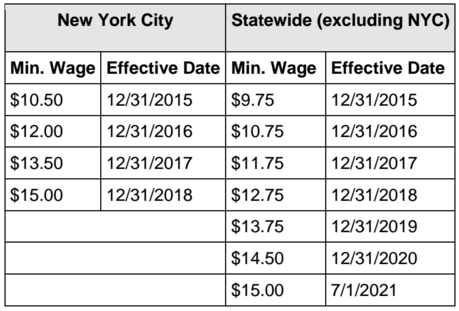A chart of accounts is a listing of financial statement categories in a numerical sequence.
Most clients are familiar with various sales and expense accounts. The purpose of the chart of accounts is to total your financial information into a standard accounting format. This enables skilled readers of financial statements to quickly see the highlights of summarized transactions in your company.
Having up to date precise records allows management to track a business as it grows and goes through sales cycles. It is critical for businesses to measure their results against anticipated results [a budget] so that they can stay on track to attain the company’s goals.
 I am often amazed at the number of small businesses which operate with no goals, no budget and no plan of action. It is these very same businesses that wonder at yearend where all the money went and why profits are so low. Yet every fortune 500 company and I suspect every company in the stock market runs a budget and constantly monitors and adjusts their forecasts. Why? Because knowing where you are headed allows the company to make the necessary corrections and adjustments to meet the company sales and profit goals.
I am often amazed at the number of small businesses which operate with no goals, no budget and no plan of action. It is these very same businesses that wonder at yearend where all the money went and why profits are so low. Yet every fortune 500 company and I suspect every company in the stock market runs a budget and constantly monitors and adjusts their forecasts. Why? Because knowing where you are headed allows the company to make the necessary corrections and adjustments to meet the company sales and profit goals.
All of this starts with a good chart of accounts. Just as the name sounds, we are charting our growth and progress as a company, by categorizing each transaction as a sale, a particular expense, an asset purchase, acquiring or relinquishing debt etc.
Surprisingly, QuickBooks, the most famous small business accounting software does a rather lousy job at assigning businesses a chart of accounts. I have been working with QuickBooks software for years and it appears to me as though the creator of the standard chart of accounts was either a programmer or a non-seasoned accountant.
A good chart starts with the assigning account numbers by financial statement categories. Here is a basic chart that will work for most firms:
Assets – 10000
Liabilities – 20000
Equity – 30000
Sales – 40000
Cost of Sales – 50000
Selling expenses – 6000
Shipping and warehousing expenses – 70000
General and Administrative expenses – 80000
Non business expenses and officer withdrawals – 90000
This general list can be modified for smaller companies. Many of our clients have most all their expenses in the 60000s. We use 70000 for insurance and taxes. We use 80000 for payroll.
So as an example, we assign numbers to each expense in a way that will automatically alphabetize the expenses. This makes it easier for reader to find an expense they might be looking for.
If advertising expense is 60000, and auto expense is 61000 you can see already that advertising will appear in a financial statement followed by auto expense. I have the expenses starting with the letter ‘A’ come first. Telephone expense would be much further down the list and Wage expense would be at the end of the financial statement list of expenses [preceded by Utility expense].
Many clients make the error of assigning an expense to more than 1 account in the chart of accounts. This only leads to confusion as one has to hunt all over and then add several categories labeled similarly to get the total for an expense category. Also few clients truly understand a balance sheet and should not attempt to create the balance sheet chart without help. Fixed Assets like machinery, buildings, improvements and vehicles belong to the same group of fixed assets, but each must have its own unique number. This way if you dispose of an asset, we can clearly trace its cost and determine the gain or sale on disposition.
The same holds true for liabilities. There are long term and short term liabilities. I like to use 21,000 – 24,999 for short term liabilities and 25,000-29,999 for long term liabilities. Typically, 20000 is for accounts payable since regular business bills usually are listed first.
Fewer clients understand equity. Equity is what your company is worth. The difference between assets and liabilities. There are several equity categories. For this short lesson for small businesses we will stick with Capital Stock we use account# 32500, additional paid in capital we use #35000 and retained earnings which we use #39000. Partnerships don’t have stock and don’t use these categories but also should have separate capital accounts for each partner.
QuickBooks in particular does a lousy job in equity. First they have an account called ‘opening balance equity’ which is in fact a meaningless account to all cpa’s. They also list other equity accounts after retained earnings which no one I know would list in that order in a published financial statement. Fortunately, QuickBooks allows you to keep your account names and change the numeric equivalent to facilitate proper order of accounts to display.
In order to set up a chart of accounts you need a working knowledge of typical accounts on your balance sheet and income statement. You chart of accounts is permanent company information and once established are fairly set in stone.
Examining prior year financial statements to the current period allows management to see trends and help predict some future outcomes and growth for a business. Which is why you want to start with a nicely set up chart of accounts for your business. A good chart of accounts with up to date records allows you to track your business progress and react to changes in the market efficiently.
 Identity theft is a growing crime with no limit in sight in the future. There are so many ways to illegally obtain someone’s personal information. There is dumpster diving, pick pocketing wallets and purses, unauthorized release of personal data from computer hackers and phone solicitations that obtain data illegally.
Identity theft is a growing crime with no limit in sight in the future. There are so many ways to illegally obtain someone’s personal information. There is dumpster diving, pick pocketing wallets and purses, unauthorized release of personal data from computer hackers and phone solicitations that obtain data illegally. On the topic of seeing your tax advisor, what documents do you need to bring?
On the topic of seeing your tax advisor, what documents do you need to bring?



